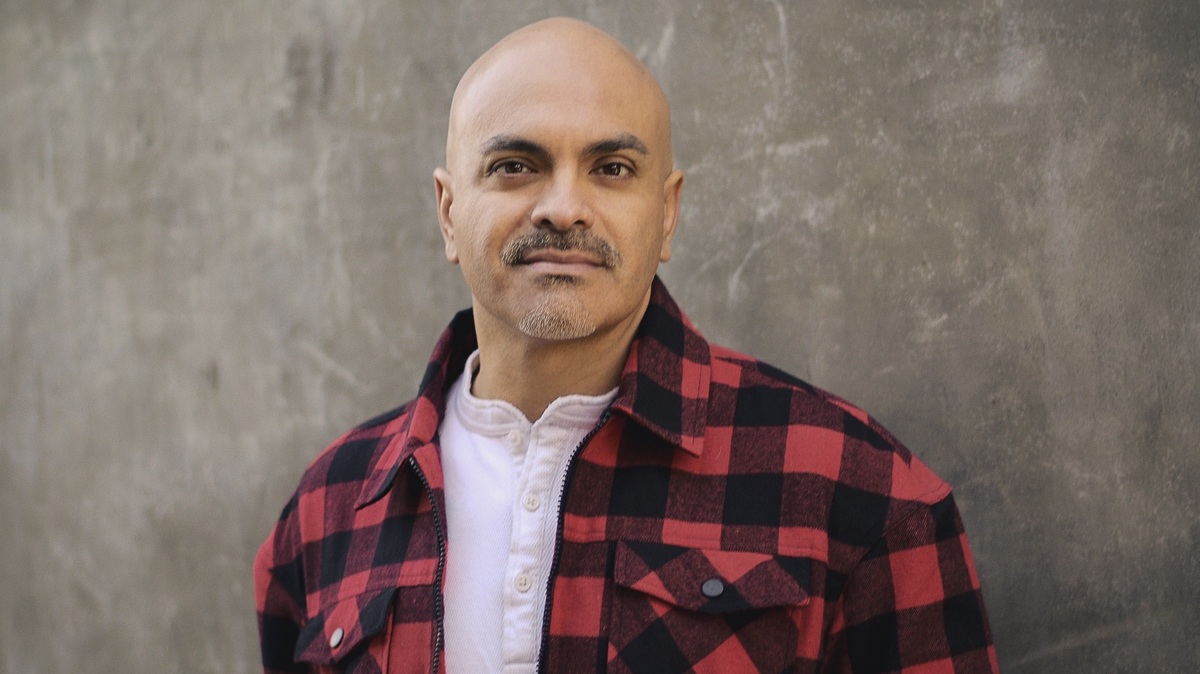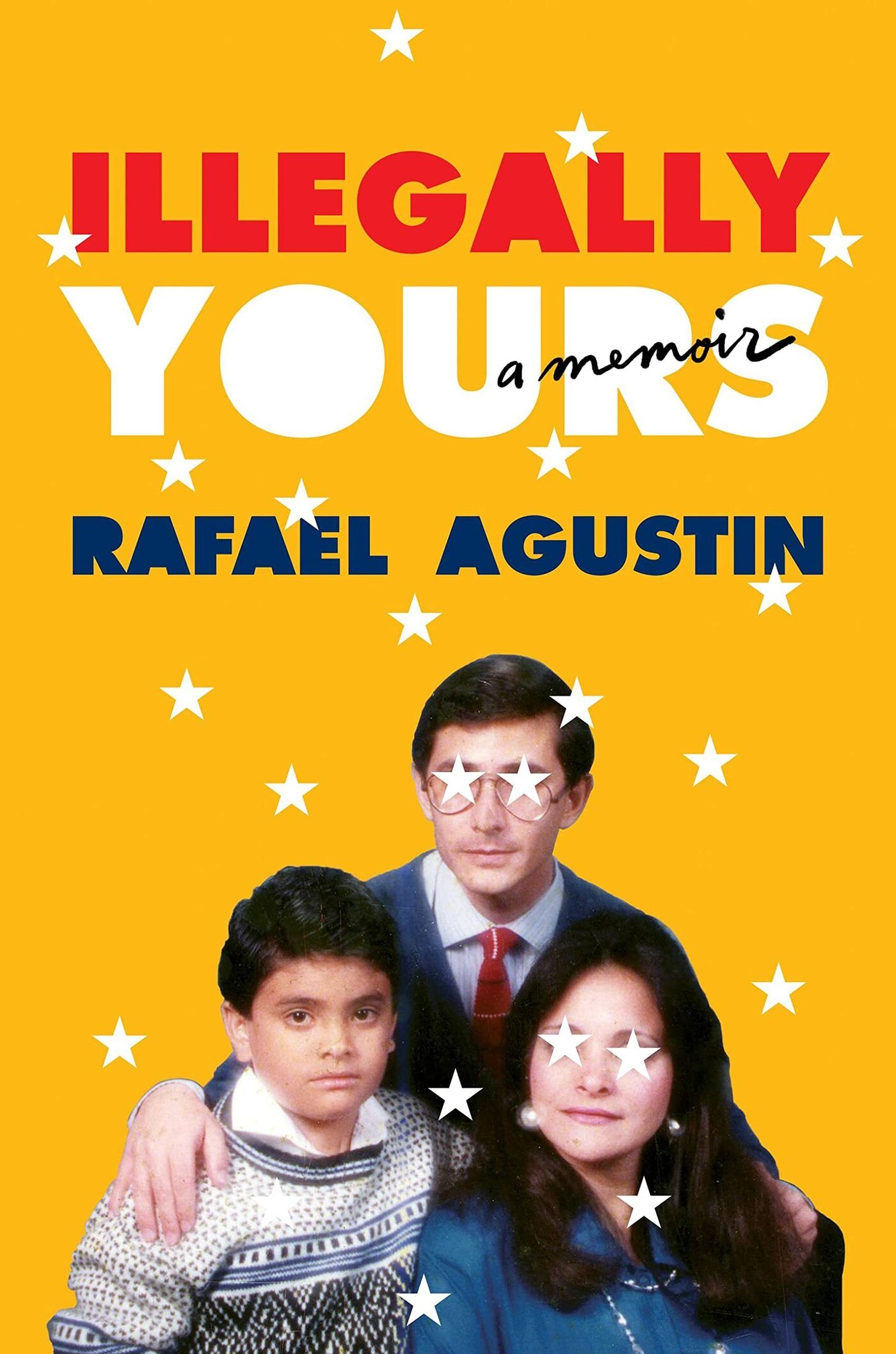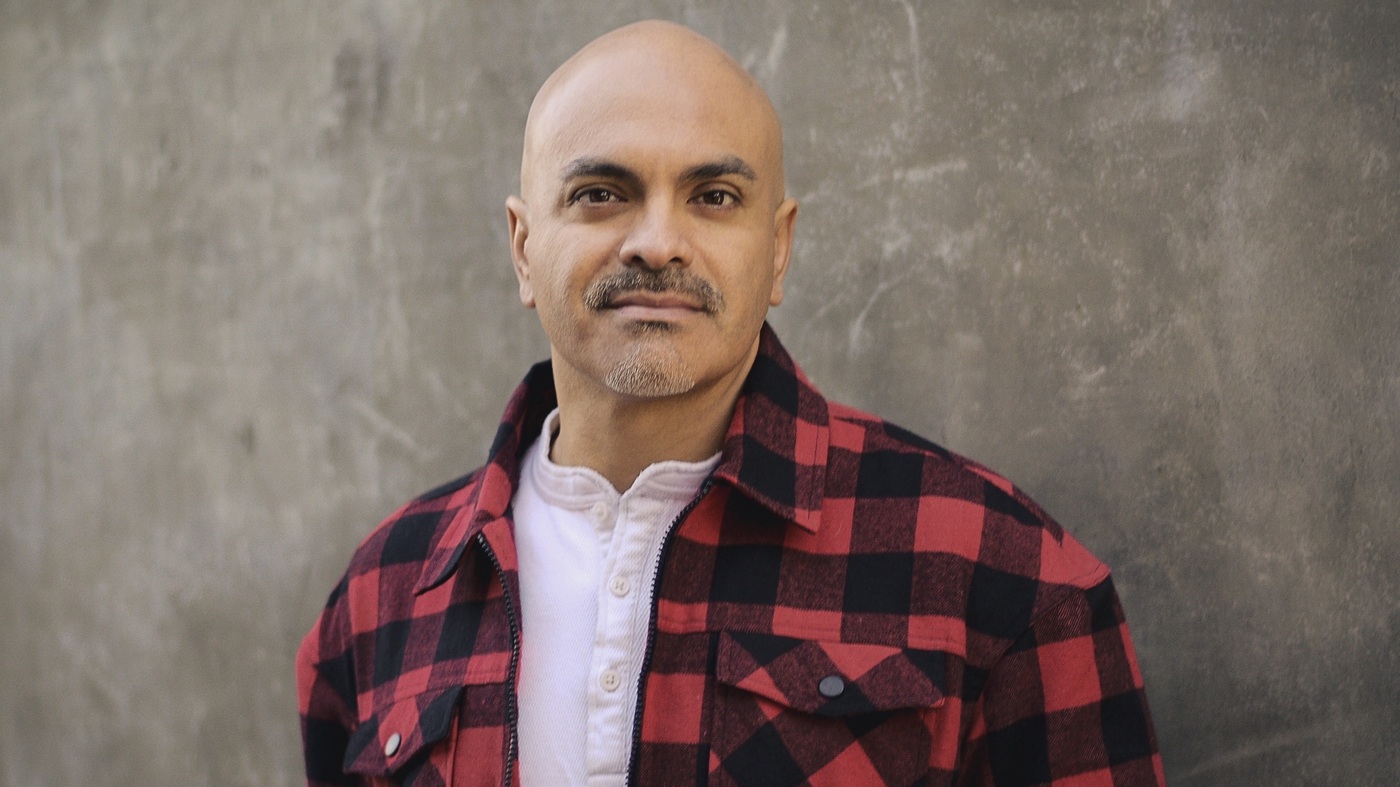Rafael Agustin was a writer on the CW network show Joan the Virginand is now CEO of the Latino Film Institute.
Marvin Lemus/Grand Central Publishing
hide caption
toggle caption
Marvin Lemus/Grand Central Publishing

Rafael Agustin was a writer on the CW network show Joan the Virginand is now CEO of the Latino Film Institute.
Marvin Lemus/Grand Central Publishing
Writer and television producer Rafael Agustin was 7 years old when he arrived in the United States from Ecuador with his parents. He remembers being so young and naive that he thought the Fourth of July fireworks over Los Angeles airport were there to announce their arrival. He also believed that his family had just visited the United States for a vacation.
“After several months, after a year, I said to myself: ‘Wait, how long is this holiday?'”, says Agustin.
In reality, Agustin’s family had immigrated to the country illegally – a fact that the Joan the Virgin the writer only realized this years later, when he tried to apply for his driver’s license as a teenager. That’s when his parents sat him down for what he calls “the talk.”
“It wasn’t about the birds and the bees, it was about Uncle Sam and the United States,” he says. “Basically they told me I was undocumented. They told me they had social security numbers, but I didn’t.”
In his new memoirs, Illegally yours, Agustin shares how his parents – who had been pediatric surgeons and anesthesiologists in Ecuador – ended up working at a car wash and Kmart in the United States.

“They came [to the U.S.] thinking that things would be calmer, would be better, that their work can move them forward in life,” he says. “But little did they know they would be caught up in odd jobs and trying to learn the language and the hard realization that medical licenses don’t transfer from country to country.”
Money was tight, and Agustin’s family moved frequently to hide his immigration status. Still, he has fond memories of sitting together watching American TV shows and movies after his parents left work.
“That’s where my love for the entertainment industry started,” he says. “I was like, ‘Wow, that’s the only thing I can share with my parents in this country.’ … We’ve always hooked up late at night watching a movie or a TV show to escape our realities. And that’s when I was like, ‘Oh, I think I want to do this for make a living.'”
Interview Highlights

Illegally yoursby Rafael Agustin
Grand Central Editions
hide caption
toggle caption
Grand Central Editions

Illegally yoursby Rafael Agustin
Grand Central Editions
On the loss of status her parents suffered when they moved from Ecuador to the United States
I took their sacrifice close to my heart, as I watched them be doctors one week and then take on those odd jobs the next week. But the beauty of our story is that no matter how difficult it was, they tried to hide the reality of our documentation from me so that I didn’t have to go through this. Yes, it was difficult to come to a new country and make new friends, learn a new language, and we moved around a lot. I did not know [the reason] why we moved so much [was] because every time someone finds out [my parents’] immigration issues, we had to pack up and leave and go to another city to try to find another job. But all this they hid from me. So I could grow an unconscious, stupid American kid.
Why he stopped speaking Spanish as a child
I must have been in fourth or fifth grade at most, and I’m walking the beach with my parents in San Clemente, California, which…has an immigration checkpoint. …And I remember what appeared to be an undocumented worker walked past us, and then immigration officers chased him and dumped him. I turned to my dad and in Spanish I said, “What’s going on?” And he turned to me with fear in his eyes, and he said, “Don’t speak Spanish. And I had never seen my father be afraid before. So that moment really shook me to my core. And because whatever happened, I internalized that fear in my dad and thought he meant, “Never speak Spanish again.
Looking back, I know he said, don’t speak Spanish then until the immigration officers are gone. But I didn’t speak Spanish for several years. For example, even my parents spoke to me in Spanish, but I answered in English. And I didn’t realize that until after high school. And my mother told me what happened. And I was like, “Oh, wow. I had no idea that was the inciting incident for me turning my back on my native language.”
Going to UCLA School of Film and Television
I had acted like an American for most of [my life], so being on stage felt natural to me. I felt like I had played a role all my life. And again, you can’t make this stuff up, because if I write that in the script and turn it in, my producer, showrunner would be like, “That’s not realistic,” but I got my acceptance to UCLA and my acceptance for permanent residency on the same day. Oh my God, when we opened this mail together, my mom, dad and I just hugged and cried on the floor. It was, like, 14 years of pain, it’s all gone, and the promise of a new American future. So I ended up at UCLA on an acting scholarship. And I think, “OK, this is going to be this is it. This is my path. This is my career!” But I quickly realized that there was no role for people of color, let alone Latinos and Latinas. So I quickly realized that to have a career in this field, I had to write myself into existence. And that’s how I became a reluctant writer.
On writing the stage show N*W*C with his best friends
I didn’t want to play stereotypical roles. I didn’t want to buy negative stereotypes just to make a paycheck. That’s why I wrote the show I wrote, which I can’t really say the title of, but which represents three pejorative terms. It’s called N*W*C*and it featured my best friend, Miles Gregley, who is African American, my other best friend, Allan Axibal, [who] was Asian American, and myself. And this little show was just supposed to be a showcase for our talents, because as black people and Asian Americans [actors], they felt the same. They weren’t seen and they couldn’t get roles that would fully highlight the complexity of their existence.
So we created the show. It’s supposed to be just a display case, and it catches fire. It’s becoming like that cult phenomenon at UCLA, even the Los Angeles Time came and wrote about it. So we became “famous on campus” very quickly. And we go from a student show to a professional tour in downtown Los Angeles (thanks to the Latino Theater Company at the Los Angeles Theater Center), to a national tour in just three months. It was a crazy trajectory. And we sold every night downtown [L.A.]. And the only reason we ended the race was because we had finals and we were going to be the first in our families to graduate from college in this country, and that meant a lot to us.
On tour N*W*C* across the country, often to white audiences, and talk about race
People would bring us not just for the show, but for the Q&As we would have and for the residencies we would do with the community, which was sometimes more powerful than the show. It was being able to bring people together through comedy, because laughter builds community. So we shot the show for 5 to 6 years. We went to 44 states. We were famous in, like, Casper, Wyoming. …
We were in Utah, and this older black gentleman came up to me after the show, and he was like, ‘Listen, man, you need to know that I’ve been fighting for social justice my whole life. . walked with Dr. King, but what you did today was completely different and just as powerful, because it’s not a walk or a dissertation or even a debate or a dialogue. When you share your pain and your oppression and the racism you felt on stage, everyone in the audience felt it.” And it wasn’t us trying to convince anymore [people] that this racism is real because it becomes all of us through the power of catharsis on stage. It really blew me away. That’s when I thought, “Wow, the power of art and the power of storytelling can have more impact than any lecture or speech.”
On Her Parents’ Differing Feelings About Their Immigration History
My parents are the story of two different people. My dad kinda resented me because I could dream free and wild when he wasn’t, and he was so prepared and so educated and so brilliant, but he couldn’t get over the immigration issues that we had in this country. My mom was just an optimist who always wanted to do what was best for the family, and she wanted to support my dad and she wanted to support me. And I didn’t know, but there were a couple of times where my dad was like, ‘OK, this American experiment isn’t working, let’s go back.’ And my mom put her foot down and she said, “We’re not going back until Rafa graduates. We’re not going back until he’s done everything ‘it started here.’ And once I did, once they saw me becoming a small business owner, having a successful tour agency, they both turned to me and said, “We’re going back in Ecuador. We’re going back to do what God put us in this world to do, and that’s to save children’s lives.” And when they left, I like to think they left still looking of their American dream just in another part of America, in South America. And I stayed behind to accomplish everything they set out to do. That’s how I became the American citizen that I am today.
Sam Briger and Joel Wolfram produced and edited this interview for broadcast. Bridget Bentz and Molly Seavy-Nesper adapted it for the web.

